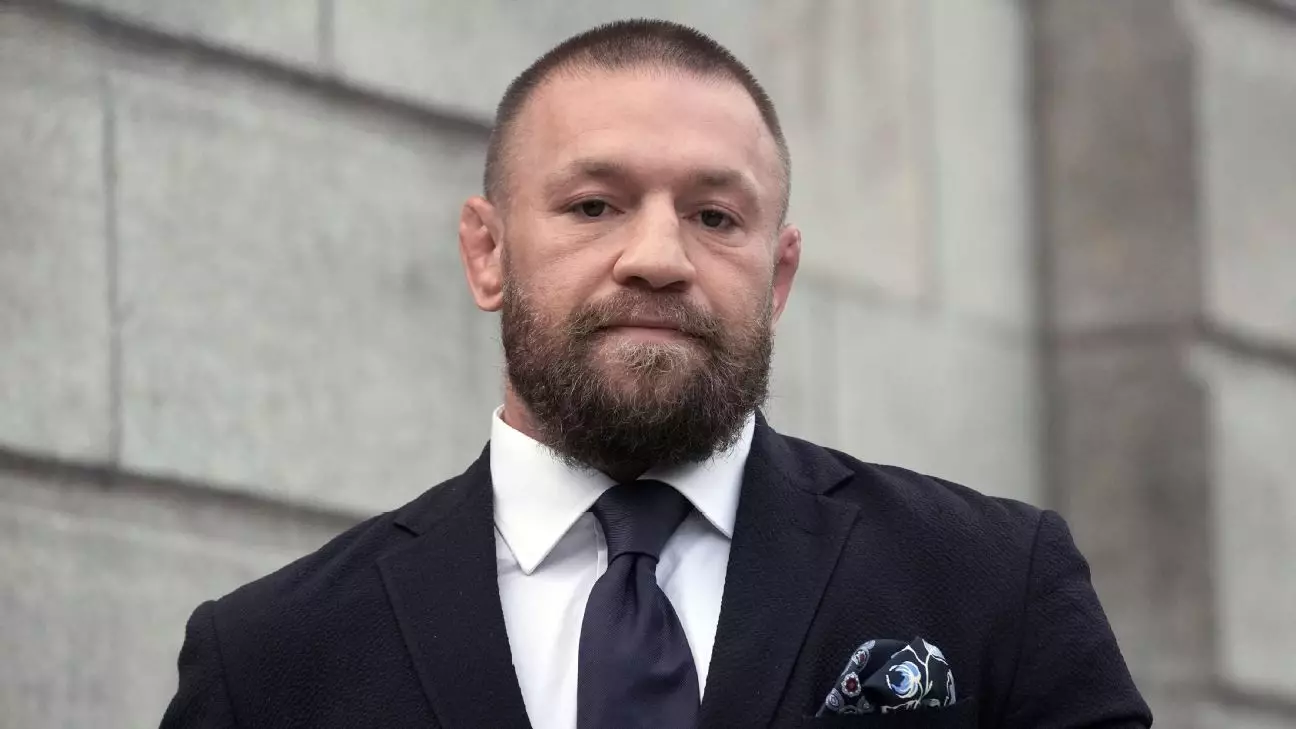In a significant legal judgement, a jury has ruled in favor of a woman who accused global sports icon Conor McGregor of sexual assault. The High Court in Dublin ordered McGregor to pay €248,000 (approximately $257,000) to the complainant. The case went through various stages of deliberation, prompting the jury to reach a decision after intense discussions. While McGregor has publicly denied the accusations and insisted that the encounter was consensual, the ruling underscores a growing scrutiny of allegations made against public figures, particularly in the sports realm.
According to testimony presented during the trial, the woman met McGregor at a Christmas party, a seemingly innocent interaction that took a dark turn in a hotel room in December 2018. She recounted harrowing details of the alleged assault, claiming that McGregor choked her and made threats that heightened her fear for her safety. These serious allegations were bolstered by the testimony of a paramedic who treated the woman the following morning, citing extreme bruising that he had never encountered in other cases.
The emotional weight of the testimony resonated in the courtroom, illustrating the psychological and physical toll such an experience can have on victims. Her lawyer, John Gordon, emphasized that the woman did not come to court with the intention of painting herself as a “saint.” Instead, she sought accountability for what she described as a traumatic encounter, and he argued that McGregor’s frustration from another fight in Las Vegas two months earlier fueled the violent incident.
McGregor’s Denial: A Divergent Story
In stark contrast to the complainant’s account, McGregor’s version of events painted a less menacing picture. He claimed that the sexual encounter was vigorous but consensual, arguing that there was no indication from the woman who expressed dissent in any manner during the encounter. “It is a full-blown lie among many lies,” he stated in reference to the allegations of choking and threats. This narrative sheds light on the complexities surrounding consent and accountability in the context of sexual violence claims.
Moreover, McGregor’s legal team appealed to the jury’s perception of him, suggesting that personal biases toward the high-profile fighter could sway their judgement. His lawyer, Remy Farrell, urged jurors to distinguish between their opinions of McGregor as a public figure and the specific legal matter before them. However, the jury ultimately sided with the accuser, sending a powerful message about accountability, regardless of fame or social stature.
This case touches on broader societal issues, particularly the growing discourse around sexual violence and power dynamics. With celebrities frequently under the spotlight, it’s vital to examine how fame can create a barrier to accountability. The public arena often complicates the perception of events, where a jury’s decision may reflect not only the facts of the case but also the collective societal understanding of consent and aggression.
Additionally, cases like these reveal the ongoing challenges faced by victims of sexual assault, who may grapple with public scrutiny and the fear of not being believed. This case not only highlights these individual challenges but also reflects a potential shift in societal patience with powerful figures who may misuse their status.
The Aftermath of the Ruling
The ruling holds significant implications for McGregor’s public persona as he remains a complex figure within the sporting world. His career has already been marked by numerous controversies, and this judgment could add another layer to his challenges ahead. Notably, the fighter has not participated in a match since suffering a severe leg injury in July 2021, further compounding the scrutiny he faces as he eyes a return to the octagon.
To conclude, the legal decision against Conor McGregor underscores an essential moment in the dialogue surrounding accountability in the face of fame and the gripping realities of sexual violence. As society continues to grapple with these issues, the case serves as a reminder of the importance of believing victims and addressing claims transparently and justly, regardless of the public status of the accused.

